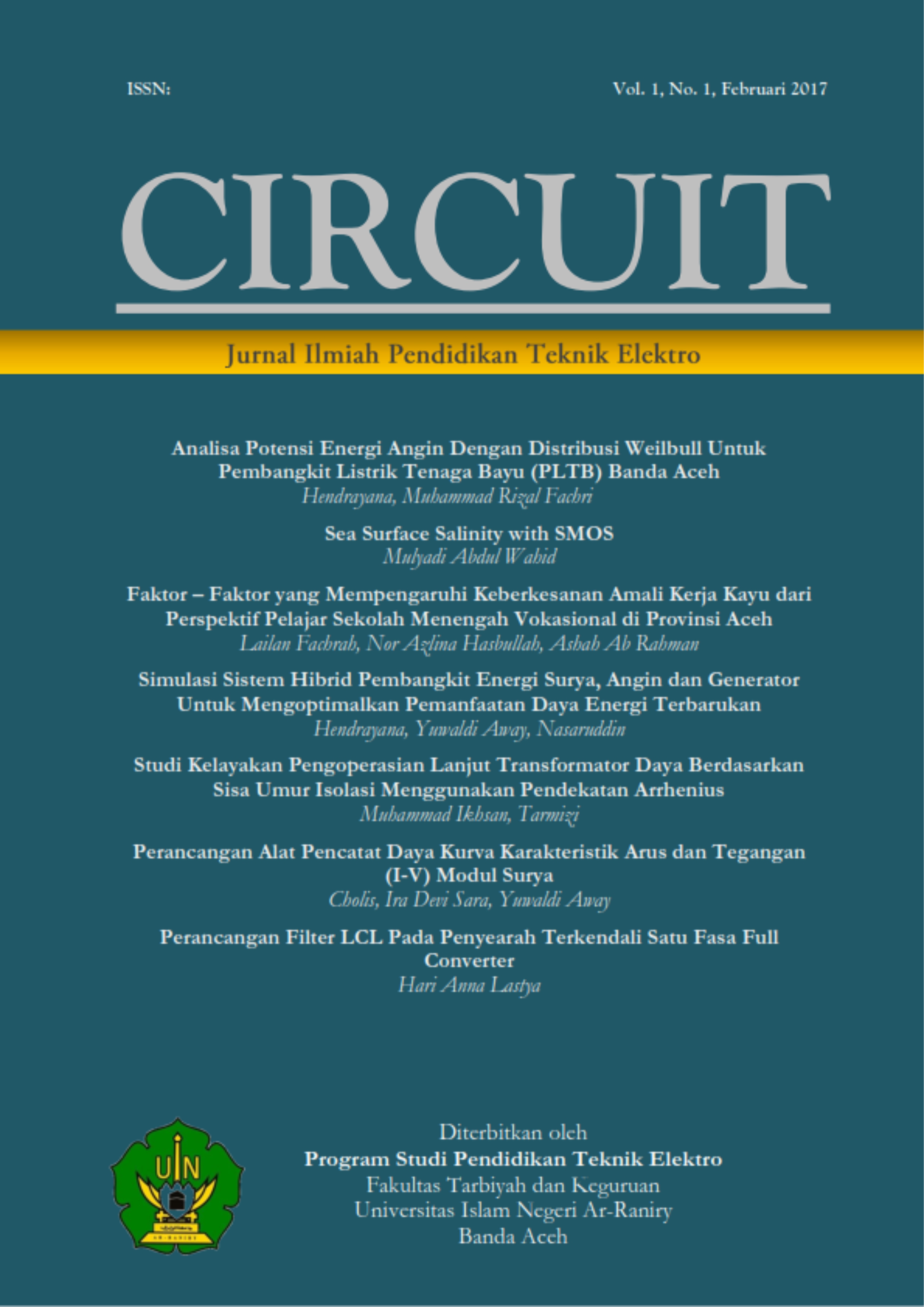Penerapan Kurikulum SMK 2013 Revisi 2018 Dalam Pelaksanaan Pembelajaran Di Provinsi Aceh
DOI:
https://doi.org/10.22373/crc.v6i1.11192Keywords:
Implementation, Curriculum, SMK, Implementation of learningAbstract
Changing the Indonesian government's policy on the curriculum occured so quickly. The SMK curriculum is revised every year. Currently, Vocational Schools in Aceh province are already using the 2013 revised 2018 curriculum. However, in its implementation, minority of teachers received the training on socializing the implementation of the 2013 revised 2018 curriculum. Thus, it becomes a problem for the aspect of teacher competence in understanding and implementing the 2013 revised 2018 curriculum. However, the purpose of this study, to find out the implementation of the 2013 revised 2018 SMK curriculum in the learning process in Aceh province. This research uses descriptive quantitative research methods. The research subjects involved 30 teachers on vocational subjects in the province of Aceh. The chosen instrument is a questionnaire. The results showed that 16.67% or as many as 5 respondents responded that the implementation of the 2013 revised 2018 curriculum was partially implemented. Furthermore, a total of 23.33% or 7 respondents stated that the implementation of the curriculum was categorized as mostly implemented, and last, 60% or 18 respondents stated that the implementation curriculum is categorized of fully implemented. It can be concluded that the implementation of the 2013 revised 2018 curriculum in the implementation of learning in Aceh province is in the fully implemented category. This is indicated by the obtained mean value of 50.38 which located in the class interval score (>48.75) with the category fully implemented.
References
Afid Burhanuddin (2019). Sistem Pendidikan Nasional. Jakarta.
Aisyah Nur Rahmawati (2018). Identifikasi Masalah yang Dihadapi Guru dalam Penerapan Kurikulum 2013 Revisi di SD. Jurnal Ilmiah Indonesia Journal of Primary Education, 2(1), 114-123.
Bobby Gunawan (2017). Implementasi Kurikulum 2013 Revisi Pada Pembelajaran Debat (Studi Kasus Kelas X SMA Negeri 1 Karanganyar. Yogyakarta : Universitas Negeri Yogyakarta.
Kemdikbud (2018), Struktur Kurikulum SMK-MAK Nomor 07-D.D5-KK-2018. Diakses pada: www. psmk.kemdikbud.go.id.
Muhammad Nur Azmi & Tri Rijanto. (2018). Implementasi Kurikulum 2013 Pada Program Keahlian Teknik Instalasi Tenaga Listrik SMK Negeri di Surabaya. Jurnal Pendidikan Teknik Elektro, 7(2), 225-229.
Niam Wahzudik, Heri Triluqman Budisantoso, Basuki Sulistio (2018). Kendala dan Rekomendasi Perbaikan Pengembangan Kurikulum di Sekolah Menengah Kejuruan. Indonesian Journal of Curriculum and Educational Technology Studies, 6(2), 87-9.
Nur Fitria Nasri & Justica. (2018). Problematika Implementasi Kurikulum 2013 Revisi Pada Mata Pelajaran IPS di SMP Brawijaya Smart School Kota Malang. Jawa Timur,
Palupi, Retno & Fahmi Johan Syah. (2019). Penerapan Kurikulum 2013 Edisi Revisi 2017 Pada Pembelajaran Ekonomi Kelas X Di SMA Muhammadiyah 1 Surakarta. Jawa Tengah
Riduwan. (2012). Skala Pengukuran Variabel-Variabel Penelitian. Bandung: Alfabeta
Sudarman (2015). Pengantar Statistik Pendidikan. Mulawarman University Press. Kalimantan Timur.
Sutrisno Hadi. (2004). Metodologi Research 2. Andi Offset. Yogyakarta.
Downloads
Published
Issue
Section
License
Authors who publish in CIRCUIT: Jurnal Ilmiah Pendidikan Teknik Elektro agree to the following terms:
- Authors retain copyright and grant the journal right of first publication with the work licensed under a Creative Commons Attribution-ShareAlike 4.0 International License (CC BY-SA 4.0) that allows others to share and adapt the work with an acknowledgement of the authorship and initial publication in this journal
- Authors are able to enter into separate, additional contractual arrangements for the non-exclusive distribution of the journal's published version of the work (e.g., post it to an institutional repository or publish it in a book), with an acknowledgment of its initial publication in this journal.
- Authors are permitted and encouraged to post their work online (e.g., in institutional repositories or on their website) prior to and during the submission process, as it can lead to productive exchanges, as well as earlier and greater citation of published work. (See The Effect of Open Acces)

